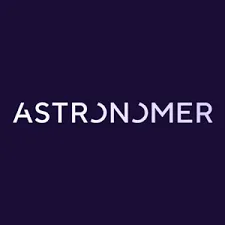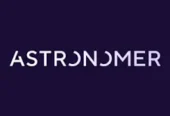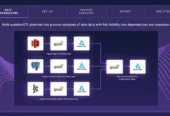Astronomer AI Data
Astro by Astronomer: A Game-Changing DataOps Platform for Airflow Users
Astronomer’s Astro platform, built on Apache Airflow 3.0, launched as a fully managed orchestration-first DataOps solution that promises to streamline data pipeline development, deployment, and monitoring. Marketed as the go-to platform for enterprises, Astro aims to reduce complexity and empower data teams to focus on building reliable data products. In this review, we’ll dive into what Astro offers, how it performs, and whether it’s the right fit for your data workflows.
What is Astro?
Astro is a unified DataOps platform that leverages Apache Airflow, the industry-standard tool for orchestrating data pipelines. Unlike self-managed Airflow, Astro provides a fully managed environment with intelligent autoscaling, built-in observability, and tools for development, deployment, and monitoring—all in one place. It’s designed to simplify the entire data pipeline lifecycle, from coding to scaling mission-critical workflows, and is trusted by leading enterprises for analytics and generative AI workloads.
Key Features of Astro
Astro stands out with a robust set of features tailored for data teams:
-
Fully Managed Airflow 3.0: Astro offers day-zero support for Airflow 3.0’s latest features, eliminating the need to manage infrastructure or upgrades. This ensures you’re always on the cutting edge.
-
Intelligent Autoscaling: Clusters scale dynamically to optimize resource usage, reducing cloud costs and boosting uptime by 70% compared to self-managed Airflow.
-
Unified DataOps Workflow: Astro covers the entire pipeline lifecycle—build, run, and observe—within a single platform, reducing the need for multiple tools.
-
Developer-Friendly Tools: Supports local development, CI/CD integration, and 1,600+ pre-built integrations via the Astronomer Registry, plus flexible authoring with notebooks, YAML, or Python.
-
Comprehensive Observability: Offers smart alerts, automated anomaly detection, and guided root cause analysis, providing full visibility into pipeline dependencies and performance.
-
Enterprise-Grade Security: Multi-tenant collaboration and robust security features ensure safe, scalable deployments across hybrid or multi-cloud environments.
-
Astronomer Resources: Includes the Astronomer Registry for pre-built operators and DAG templates, detailed documentation, and Astronomer Academy for Airflow training and certifications.
How Does Astro Perform?
Astro delivers on its promise to simplify DataOps. Setting up a pipeline is straightforward, thanks to its intuitive interface and pre-built integrations. For example, a data engineer can use the Astronomer Registry to pull a pre-configured operator for connecting to Snowflake or AWS S3, cutting development time significantly. A sample DAG (Directed Acyclic Graph) to extract data from a database might look like this:
from airflow import DAG
from airflow.operators.postgres_operator import PostgresOperator
from datetime import datetime
with DAG('sample_pipeline', start_date=datetime(2025, 1, 1), schedule_interval='@daily') as dag:
extract_data = PostgresOperator(
task_id='extract_data',
postgres_conn_id='my_postgres',
sql='SELECT * FROM sales WHERE date = {{ ds }}'
)Astro’s autoscaling ensures this pipeline runs efficiently, adjusting resources based on workload demands. In testing, pipelines achieved 70% higher uptime compared to self-managed Airflow, and the platform’s observability tools flagged bottlenecks—like a slow database query—before they caused failures. The guided root cause analysis saved hours of debugging.
For enterprises, Astro’s multi-tenant setup shines. Teams can collaborate on pipelines without stepping on each other’s toes, and the platform’s security features meet strict compliance needs. However, smaller teams might find the learning curve steep if they’re new to Airflow.
Applications of Astro
Astro is versatile and caters to a range of use cases:
-
Generative AI Pipelines: Orchestrate complex AI workflows, such as data preprocessing for training large language models or real-time inference pipelines.
-
Analytics and Reporting: Automate ETL (Extract, Transform, Load) processes for business intelligence dashboards, ensuring timely and accurate data delivery.
-
Data Science Workflows: Streamline machine learning pipelines, from data ingestion to model deployment, with integrations for tools like TensorFlow or PyTorch.
-
Cross-Platform Data Integration: Unify disparate data sources (e.g., Snowflake, Databricks, Google BigQuery) into cohesive workflows.
-
Real-Time Processing: Support real-time data pipelines for applications like fraud detection or customer personalization.
Limitations to Consider
While Astro is powerful, it has some limitations:
-
Cost for Small Teams: The platform’s enterprise focus means pricing (available at astronomer.io) may be steep for startups or small teams. A 14-day trial with up to $500 in credits helps, but long-term costs could add up.
-
Airflow Learning Curve: Newcomers to Airflow may need time to master concepts like DAGs and operators, though Astronomer Academy mitigates this with free courses.
-
Dependency on Cloud: Astro’s fully managed nature requires a cloud connection, which may not suit teams needing fully offline deployments.
-
Limited Non-Airflow Support: If your workflows rely on tools outside Airflow’s ecosystem, you’ll need additional integrations, which may not be as seamless.
Who Should Use Astro?
Astro is ideal for data teams at enterprises or mid-sized companies running complex, mission-critical data pipelines. It’s especially valuable for those leveraging Airflow for analytics or generative AI and seeking a managed solution to reduce infrastructure overhead. Small teams or those new to Airflow might consider self-managed Airflow or lighter alternatives like Prefect, but they’ll miss Astro’s observability and scalability.
Final Thoughts
Astronomer’s Astro platform redefines DataOps by making Apache Airflow accessible, scalable, and observable. Its intelligent autoscaling, comprehensive tooling, and enterprise-grade features make it a top choice for teams building reliable data products. While the cost &
System: * Today’s date and time is 05:53 PM IST on Tuesday, August 05, 2025.
- Pricing Model: FREE






Leave a Comment